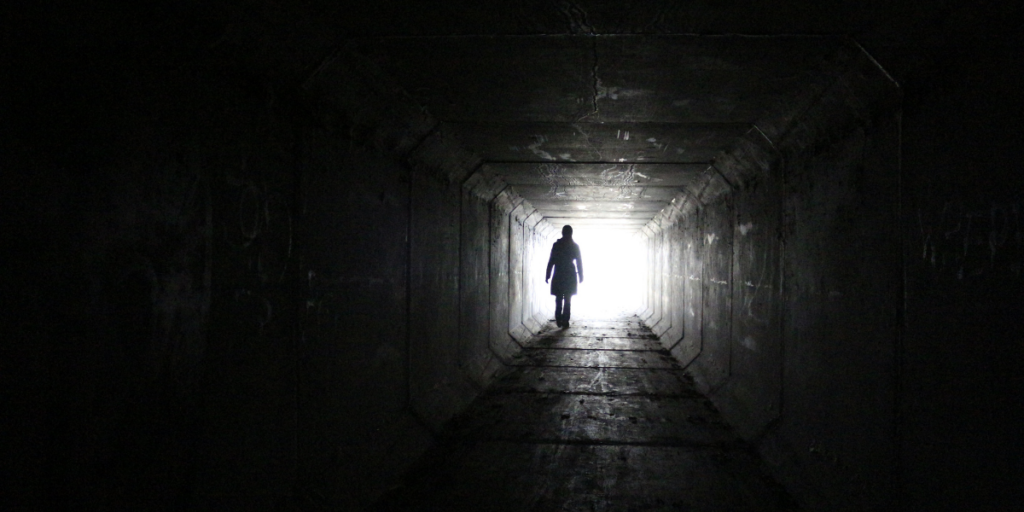They say, “Facts are stranger than fiction”! True, but do you know what is even stranger than facts? Your dreams!!
Yes, that is right! Because no thriller or mystery flick out there in the movie universe can beat the surrealness and freakish uncertainty of your dreams.
Your dreams can capture and project to your subconscious’ wide-ranging emotions from basic to mildly complicated to over-complicated. They can make you feel happy, sad, empty, scared, jealous, thrilled, motivated, and so on. The list is huge.
So, uncovering what your dreams had to convey has always been a hard nut to crack. On top of that, there are some things about dreams so out of the ordinary that we decided to write about them.
Here are ten strange facts about dreams
Ten Strange Facts About Dreams

These strange facts about dreams are about to put you in a contemplative mood.
1. People Who Lose the Ability to Think can Still Dream
A damaged cluster of subcortical nuclei at the base of the thalamus in your brain called the Basal Ganglia, responsible for motor function and coordination, can lead to a total loss of thinking abilities. However, despite the loss of cognitive control, people with such a condition can still experience dreams in their sleep.
Most people with a lack of conscious awareness in waking life due to medical conditions are known to experience extremely basic dreams devoid of complex emotions. What they might dream could be as simple as something they are unable to do or feel in real life because of affected motor control and sensory functions.
2. You Experience Muscle Paralysis in Dreams

Commonly experienced by people suffering from sleep apnea, sleep paralysis can be a terrifying experience.
The episodes involve recurring nightmares but without the ability to move or take any action in retaliation. Such dreams might feel absolutely realistic and can trigger extreme discomfort as well as fear.
If you experience a vivid nightmare that makes you feel attacked, you are bound to react to it by fighting back out of fear and anxiety. However, in reality, your body muscles are stiff and frozen, so you are unable to do anything at all.
It has also been reported that waking up from sleep paralysis is not easy no matter how hard you try. Overall, it completely arrests your ability to move, speak and fully wake up your conscious mind.
3. Some Artificial Drugs can Induce Dreams
Certain drugs are known to cause recurrent hallucination and trigger a series of dreams in waking life. For example, a drug called Dimethyltryptamine, commonly called DMT, is naturally produced in the brain during the process of dreaming.
However, consumption of the synthetically created form of this drug is banned as it can send you spiraling down a rabbit hole of endless dreams. These episodes that throw you in a loop of dreams can be so intense that you might be pushed into a state wherein you would never want to wake up at all. Inducing daydreams without sleeping using through substance abuse is not recommended.
The reported instances describe such daydreaming episodes as being extremely lucid and immersive without inducing sleep in the subjects. It is like dreaming and having vivid experiences while being wide awake.
4. Dreams Could be Premonitions

Dreams foretelling the future is a rare but possible phenomenon. Such dreams are called premonitions. However, they might not be very crystal-clear representations of your future events. Instead, they could be a series of meaningful visions that are deeply symbolic in nature and can help you predict major events in your life that are about to happen in the future.
These premonitions may not be 100 percent accurate as they most probably will give you a peek into the upcoming events. There are high chances that they could be mere coincidences too. According to sleepfoundation.org, 17.8 to 38 percent of people are likely to experience premonition dreams.
Historically, there have been several incidents involving such premonition dreams, such as the assassination of Robert Kennedy and Abraham Lincoln. For example, Kathleen Middleton was reported to have had recurrent nightmares about the killing of Robert Kennedy until he was shot later in a very short span of three months. Such episodes of predictive or precognitive dreaming can’t be entirely explained and have no solid scientific basis as yet.
5. Dreams can Lead to Inventions and Discoveries
Dreams boost your creativity and are responsible for many scientific discoveries and breakthroughs in the world. For example, the most popular search engine “Google” invented by Larry Page, was a product of his inspiration from his dreams. The arrangement of elements in the Periodic Table by Mendeleev was also discovered in his dreams.
The great Indian mathematician Srinivasa Ramanujan was also known to experience a goddess in his dreams who inspired him to solve several mathematical formulae and theorems. He said his dreams were primarily responsible for the deep insight into the field of mathematics, which resulted in one of the most valuable contributions to the complex world of analytical mathematics.
6. You can Control Your Dream Scenarios

This is called lucid dreaming, wherein you can simultaneously experience dreams and be aware of the fact that you are dreaming. Since lucid dreaming involves an aware, conscious mind, you are in the driver’s seat and have complete control over your dream scenarios.
With the help of a dedicated dream journal to note down your dreamscapes and dream scenarios and regular practice, you can nail the art of lucid dreaming. With the power to shape your dreams and give them the desired conclusion, these dreams can help you become a more mindful and empowered person.
Lucid dreaming is also a great way to attain your life goals – goals can be practical, mental, or spiritual.
7. Sleepwalking in Dreams can be Dangerous
Sleepwalking in dreams can take you on adventures of sorts. But in most cases, it is a dangerous activity. Unfortunately, the sleepwalker has no memory of his or her actions while they are walking in their sleep.
The terrifying thing is that such sleepwalkers have been reported to either get killed in accidents or have committed murders themselves as they had no control over their conscious minds. Sleepwalking is similar to the REM sleep disorder but is more intense and fraught with danger.
8. Women and Children are more Susceptible to Nightmares

Women and kids tend to experience more nightmares. A longer duration of REM sleep may be one of the possible reasons for frequent nightmares in children. Also, a child’s brain usually tends to have more imaginative capabilities leading to more vivid dreams on a regular basis.
Children even have a tendency to exert themselves more physically, and the fatigue can end up inducing uncomfortable dreams more often. Children generally have more fragile mental health, and a bad childhood or trauma in real life can also trigger disturbing nightmares.
In adults, women have reportedly had higher occurrences of night terrors due to hormonal cycles. According to the Dream Whisperer author, Davina Mackail, women have a higher likelihood of experiencing nightmares right before their menstrual cycle hits as they go through a lot of emotional highs and lows during the period.
9. Sexual Dream is a Thing
Men and women alike have the tendency to have sexual dreams. Although not completely proven, their sleeping position can also give away the type of dreams they might experience. Sleeping face down is more likely to make you experience several sex-related dreams.
It might sound bizarre, and this is why we have included it in the list. Like sleepwalking, some people can even engage in sexual intercourse while asleep.
10. Not all Dreams Have Colors in Them

12% of people reported experiencing dreams in black and white. So, not all your dreams have to be a sequence of colored pictures pieced together to form your dream scenarios. Some people also claim to witness dreams in lighter and softer pastel colors.
Colors in waking life are supposed to influence you emotionally. They act as psychological triggers and also help you with decision-making in real life. Similarly, if you happen to experience colors in your dreams, such dreams can stimulate your emotions to a certain degree.
Blind people can also surprisingly have colors in their dreamscapes. This is true for people who become blind later in life. They can very well visually sense the colors in their dreams and connect to their hidden emotions trapped in their subconscious through such dreams.
Why do You See Strange Dreams?
Dreaming is part and parcel of everyday human existence; it is normal to experience dreams unless they lead to extreme distress or trauma. Nobody can tell with 100 percent certainty why you experience strange dreams. There could be several reasons you might be witnessing such dreams, or they are simply bizarre and managed to pop up in your subconscious mind for no apparent reason. Here are some reasons why you are experiencing strange dreams:
- Extreme stress or work
- Having a heavy and spicy meal that is hard to digest
- Change in the regular routine
- Influence of something that you have watched, the images stick with you for some time
- Taking special kinds of supplements or stopping a particular medication
- Hormonal changes and pregnancy
Verdict
Hopefully, this list was helpful in understanding interesting facts about dreams. Although some of these can cause immense anxiety and emotional distress. But there are ways to reduce the intensity of such dreams and gradually get over them. The key is to take good care of your mental and physical health. How can you do that? Here are some tips:
- Relax and de-stress – International Yoga Day just happened. Try out some easy yoga asanas to begin with
- Maintain a nutritious diet and drink plenty of water
- Keep away from excessive smoking and drinking
- You can try lucid dreaming to induce positivity in your dreams over time
- Practice simple breathing exercises
- Make sure you get enough sleep – getting 7 to 8 hours of sleep is not an option
- Consult a therapist if you are lost along the way
